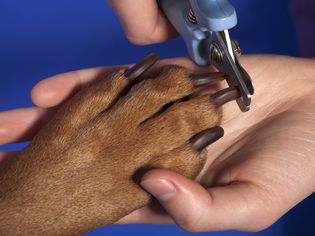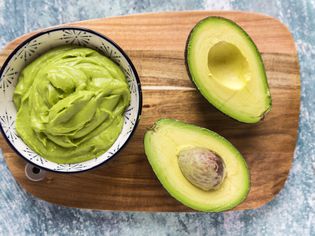How to Train an Older Dog to Do New Tricks
While most people associate training with puppies, the reality is that dogs can learn at any age. Adult dogs are often easier to train than young pupp

Can dogs eat edamame? Yes, your pup can enjoy small amounts of plain, shelled edamame as an occasional treat, says Rebecca Greenstein, DVM. Edamame refers to young, green soybeans harvested before they fully ripen. Popular in various human cuisines, especially East Asian dishes, these beans boast a strong nutritional profile.
Here’s what you need to know about safely feeding your pup this tasty legume.
Dr. Rebecca Greenstein, DVM, veterinary medical advisor for Rover
First, let’s take a look at some of the benefits of edamame for dogs.
While edamame can be a nutritious treat for dogs, it’s important to be aware of potential health risks. Here are some key considerations to keep in mind.
“Edamame is high in fiber, so for dogs who aren’t used to high fiber intake, they might cause GI upset or flatulence, but only if eaten in large amounts,” Greenstein says.
To avoid this, stick to small portions and gradually introduce edamame into your dog’s diet to avoid overwhelming their digestive system.
“The tough, chewy, fibrous pod is technically safe to ingest, but in large amounts, could create an obstructive effect in the gut,” Greenstein says.
As such, Greenstein suggests sticking to shelled edamame for your pup's safety.
“Edamame are soybeans, so while soy allergies aren’t particularly common in dogs, it’s possible your dog might be allergic to them,” Greenstein says.
Symptoms of an allergic reaction can include itching, swelling, fur loss, gastrointestinal upset, and respiratory issues. If you notice any adverse reactions after feeding your dog edamame, discontinue feeding and call your veterinarian.
One of the biggest risks of edamame isn’t associated with the beans themselves, but with what’s added to them. Edamame frequently comes seasoned with salt, garlic, oil, or other additives that can be harmful to dogs. Garlic and onion are particularly toxic to dogs and should be kept out of their diet.
To keep your pup safe, always serve plain, unseasoned edamame.
Moderation is key when it comes to giving your dog edamame. “Treats, even healthy ones, should make up no more than 10% of your dog’s daily calorie intake,” Greenstein says.
As for portion size, here are some general guidelines:
There are many other veggies that dogs can safely enjoy as an occasional treat, some of which include:
It's recommended to always consult with a veterinarian before introducing a new food to your dog’s diet.

While most people associate training with puppies, the reality is that dogs can learn at any age. Adult dogs are often easier to train than young pupp

Does your dog get aggressive—maybe even try to bite—when getting his or her nails trimmed? Many people enjoy getting their nails done at a salon, but

There's no doubt that every dog is its own person and has a specific personality. But nearly all dogs are guilty of a few bizarre behavior pattern

Why do puppies eat poop? While puppies tend to eat many strange things, poop-eating is one of the most repulsive. Some puppies don't discriminate when

Avocados have gained popularity in recent years in the health food industry. As with a lot of popular health foods, dog owners are left wondering if i

Dogs and bones go hand in hand, but not all bones are safe for your dog to eat. In fact, many of them can be downright dangerous. With the holidays f
We are an information hub dedicated to delivering clear, trustworthy, and engaging content across a wide spectrum of topics — from innovation and trends to daily life, wellness, and global developments.
Our team is passionate about creating content that helps people stay curious, make informed decisions, and understand the world with greater clarity and context.
With a focus on quality, relevance, and accessibility, we aim to offer a meaningful experience for everyone seeking knowledge, ideas, and thoughtful perspectives.